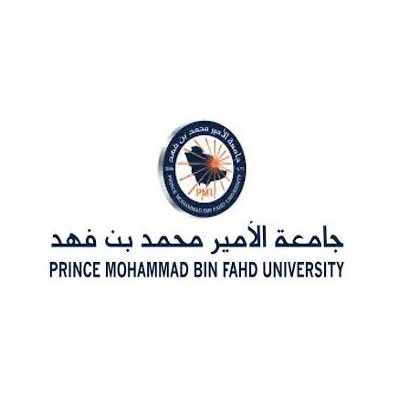Cognitive psychology is empowering female students

Sponsored by

Sponsored by

Studies into cultural behaviour and how we learn are priming students at Prince Mohammad Bin Fahd University for fulfilling careers
At a time of unprecedented social change in Saudi Arabia, a group of student researchers led by international experts at Prince Mohammad Bin Fahd University are exploring some of the key challenges facing contemporary communities.
The Cognitive Science Research Cluster (CSRC) – a new endeavour set up to train undergraduate students in evidence-based methods and theories – is led by Maura A. E. Pilotti, a researcher and lecturer in cognitive psychology who came to PMU from the US four years ago.
A native Italian, Dr Pilotti has an extensive body of international research behind her, but was keen to apply some of her theories to Saudi Arabia’s culture, exploring how the impact of different customs can shape the human mind.
The CSRC currently works across the different disciplines taught at PMU. Most of the CSRC’s students major in law, engineering, human resources or business, but in addition to their existing classes they spend several hours a week working as behavioural science researchers with her and other faculty. “We start from the beginning,” she explains. “We give them a project through which they understand the relationship between methodological choices and research questions, acquire practical research skills and become familiar with professional presentations of findings.”
The CSRC group also coordinates research with PMU’s forward-facing Futuristic Studies Center, which offers logistic and financial support to students.
At present, Dr Pilotti’s CSRC group has a project about “the illusion of knowing” – a concept that refers to the fact that humans tend to overestimate their knowledge and performance. “If you ask me right before I take a test [how I think I’ll do], I will probably say I am going to get 95 per cent – but I won’t achieve that in reality,” she says. “It is a false perception that we have regarding our abilities.”
Simple experiments to measure people’s tendency to overestimate performance, for example, have been conducted countless times in Western environments, but until recently they have not been fully explored in the Middle East. “We are trying to see how this illusion appears in students who have a different cultural background from the one possessed by students of Western countries,” says Dr Pilotti.
Key to the CSRC’s research is the understanding that undergraduate students in Western and Middle Eastern countries approach learning from a different cultural viewpoint. Some students are likely to have grown up in an environment where they are encouraged to question evidence, whereas other students tend to rely on rote learning techniques. These differences can produce interesting variations in the outcomes of behavioural studies, such as those on false memories, says Dr Pilotti.
“You can argue that if you rely on repetition and memorisation you are not going to engage critical thinking, but we wanted to see if there is perhaps an advantage in knowing how to memorise information well.” Two resulting studies from PMU found that Saudi Arabian students with this rote learning background were in fact less likely to form false memories than their US peers.
Studies such as these are interesting as standalone outputs, but they also complement the goals of Saudi Arabia’s Vision 2030 – a plan that aims to create a vibrant society, a thriving economy and an ambitious nation.
Dr Pilotti works specifically with the female campus students at PMU and is impressed by the ambition that she sees in the younger generation of women she teaches. “The students we have here are reacting to the societal changes around them,” she says. “It’s about teaching them problem-solving and practical skills. These are women who are really determined to get something out of the university experience.”
Currently, the CSRC’s work is limited to behavioural studies, such as the false memory comparison tests. But it is hoped that PMU’s ambitious plans to build a medical facility will enable the group to conduct functional magnetic resonance imaging scans to measure brain activity patterns. Dr Pilotti has high aspirations for both her students and her own research.
“Right now all the research is about young adults and I think it would be interesting to look at age-related changes in cognition,” she says. In her work in the US, she has conducted studies on the cognitive progression of patients with Alzheimer’s disease. “Here, we have a population of older adults and they are treated with such respect, such kindness…I really would like to do a study on healthy ageing in Saudi Arabia, as well as compare healthy older adults with Alzheimer’s patients. It would be great for the students because we can train them to detect the early signs of the disease,” she adds.
It is clear that multidisciplinary lessons learned such as these will not only create a wealth of opportunities for future undergraduate students but also contribute to a healthier, better-informed society. Dr Pilotti believes, however, that the local impact of the research group is already being felt.
“We hope to empower young women to pursue careers in the field of their choosing, but to be honest, they are already doing it for themselves,” she says. “The biggest challenge here is adjusting to the sheer amount of things they want to achieve every single day. It’s clear to me that the two worlds of tradition and modern ambition are coming together and trying to coexist.”
More information about Prince Mohammad Bin Fahd University
